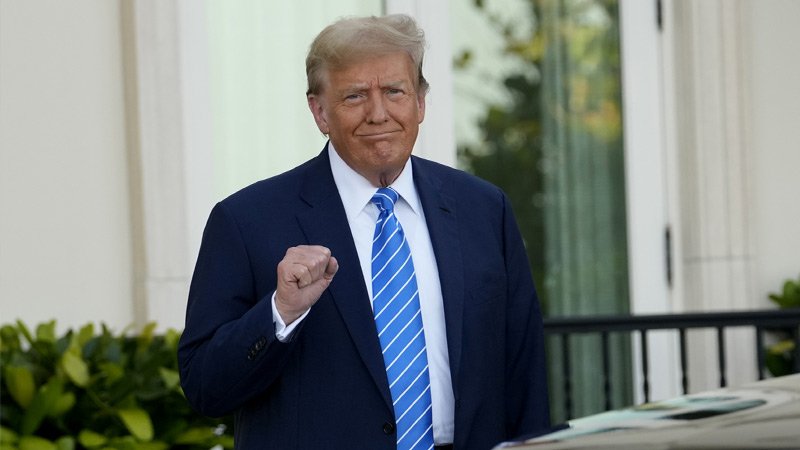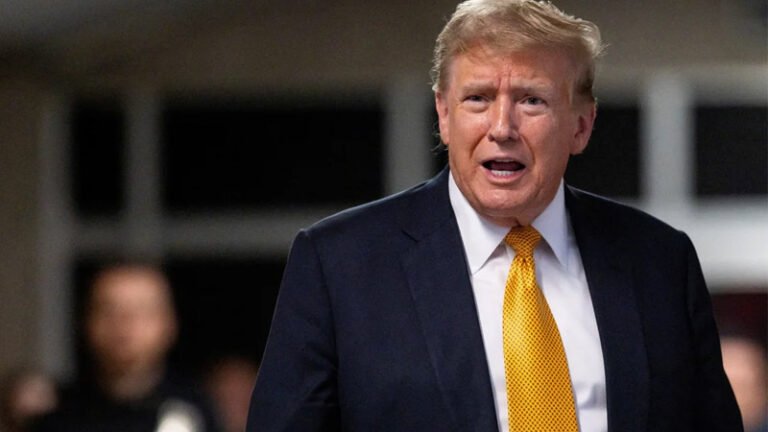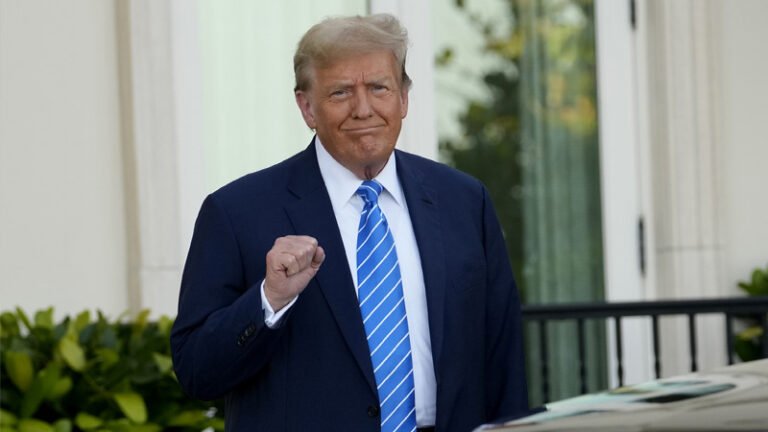
AP News
The jury in Donald Trump’s hush money trial concluded its first day of deliberations without reaching a verdict on Wednesday. As Reported by AP News, They requested to rehear testimonies from significant witnesses related to the alleged hush money scheme central to this landmark case.
After about 4 1/2 hours of deliberations, the 12-person jury was dismissed around 4 p.m. They will reconvene on Thursday to review the requested testimonies and parts of the judge’s legal instructions to guide their decision-making.
These requests marked the first communication from the jury, composed of seven men and five women, who began their deliberations just before 11:30 a.m. Judge Juan M. Merchan had instructed them to evaluate the evidence impartially, emphasizing, “It is not my responsibility to judge the evidence here. It is yours.”
The duration of the deliberations remains uncertain. A guilty verdict would signify a severe legal setback for Trump, the presumptive Republican presidential nominee, as he campaigns for a return to the White House. Conversely, an acquittal would be a significant triumph for Trump, bolstering his campaign. If the jury cannot reach a unanimous decision, the case may result in a mistrial.
After jury instructions were given, Trump expressed pessimism, reiterating his claims of a “very unfair trial” and remarking, “Mother Teresa could not beat those charges, but we’ll see. We’ll see how we do.” During the deliberations, he stayed inside the courthouse, posting complaints about the trial on his social media network and quoting commentators favorable to his case. According to Reuters, Despite his presence in court as the judge detailed the charges, Trump claimed he didn’t “know what the charges are in this rigged case.”
Trump, facing 34 counts of falsifying business records, has pleaded not guilty. The charges relate to alleged efforts to suppress damaging stories during his 2016 presidential campaign. The charges are connected to reimbursements made to Michael Cohen, Trump’s former lawyer, following Cohen’s $130,000 hush money payment to Stormy Daniels. Trump is accused of misrepresenting these reimbursements as legal expenses to conceal their true nature.
To convict Trump, the jury must unanimously agree that he made a fraudulent entry in his company’s records with the intent of committing or concealing another crime. Prosecutors argue that Trump violated New York election law by using unlawful means to promote his campaign. The jury does not need to unanimously agree on the specific unlawful act.
Throughout the trial, jurors showed keen interest in testimonies, particularly from Cohen and Daniels, often taking notes and observing witnesses closely. Deliberations began after lengthy closing arguments, with a prosecutor speaking for over five hours to meet the burden of proving Trump’s guilt beyond a reasonable doubt.
Trump’s defense focused on questioning the credibility of key prosecution witnesses, including Cohen. Judge Merchan provided standard instructions for evaluating witness testimony, highlighting factors such as plausibility, consistency, and potential motives to lie.
In their requests, jurors were asked to rehear parts of these instructions and revisit specific trial episodes. These included testimonies from Cohen and former National Enquirer publisher David Pecker about a 2015 meeting where Pecker agreed to suppress negative stories about Trump. Pecker’s testimony detailed Trump’s awareness of Karen McDougal’s story alleging an affair and Trump’s suggestion to “buy the story and take it off the market.”
The jury also sought Pecker’s account of his decision to cancel an agreement to sell McDougal’s story rights to Trump in October 2016. Pecker testified that he decided against the deal, prompting an angry response from Cohen, who warned that “the boss is going to be very angry at you.”
The jury’s review of these testimonies and instructions will resume Thursday, as they continue their deliberations in this high-profile case.





